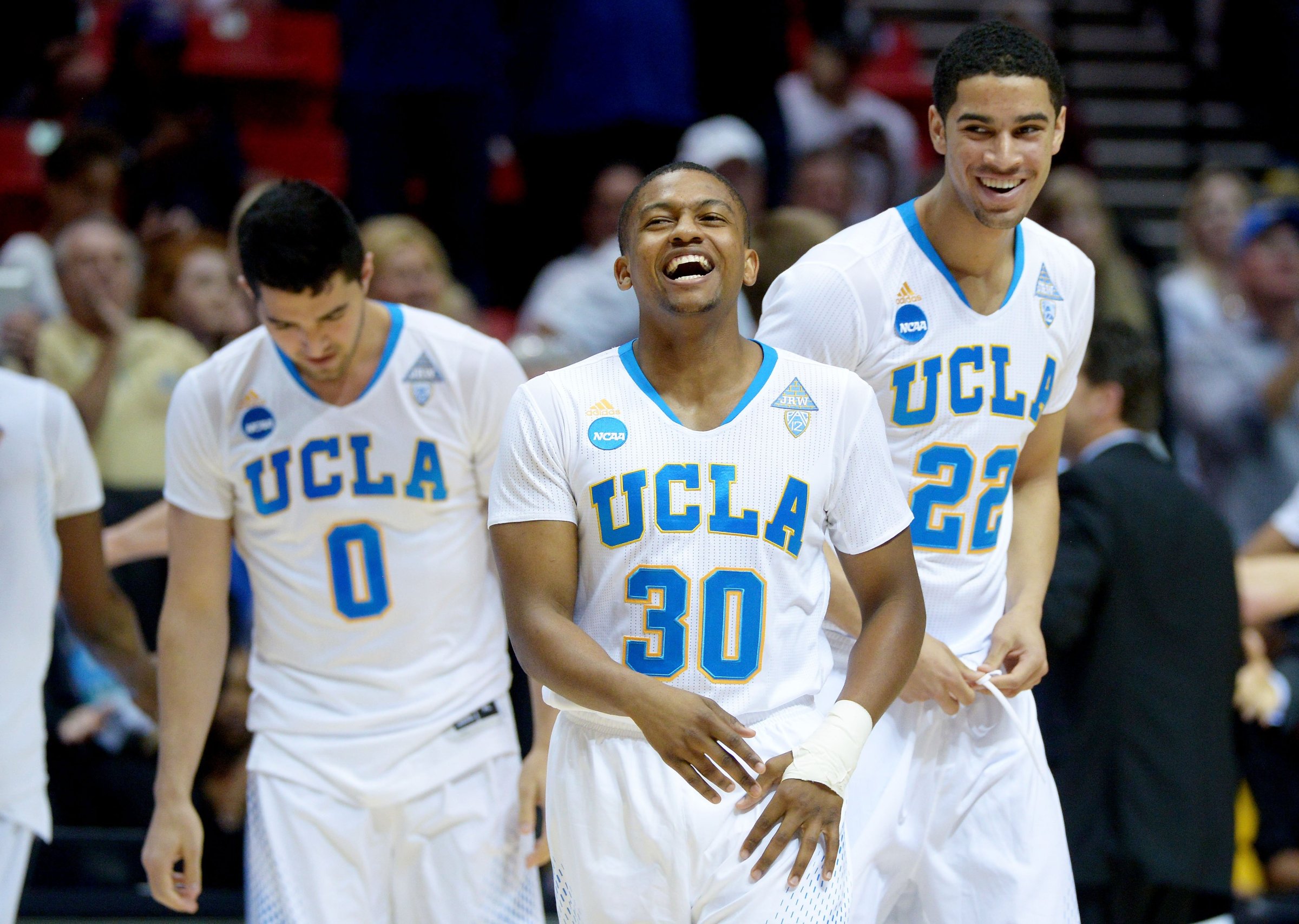
In case it weren’t already clear from the astronomical odds (9.2. quintillion-to-1 if you were to pick entirely randomly), filling out the perfect March Madness bracket is an exercise in futility. And once that first game begins, everyone’s brackets are locked and all anyone with skin in the game can do is cross their fingers and hope their pick pays off.
With the money already on the table, it’s rare that prognosticators crunch the numbers again after the tournament’s opening weekend. But there’s no reason you can’t. So as the games resume, we put the question to Tim Chartier, a mathematics professor at Davidson College. Since 2009, Chartier has taught a course that instructs students in the art and science of bracketology. Last year, one of his students, Jane Gribble, a math major and member of Davidson’s cheerleading squad, used what’s known as the Massey method, which incorporates point differential as well as wins and losses into the algorithm, to finish in the 96th percentile of ESPN’s bracket challenge. The formula also correctly predicted that Louisville would win it all.
Not bad. So we asked Chartier to run the numbers again — this time incorporating the results of the tournament’s early rounds — to try and gauge who will emerge from the Sweet 16 to win it all. His verdict: The UCLA Bruins are most likely to win the April 7 National Championship game.
Turns out incorporating the tournament games was crucial. “You massively down-weight home wins,” Chartier says, explaining why UCLA emerged ahead of higher-seeded teams with better regular season records. “At this point, your ability to win at home isn’t as important.” Though the statistical methods for picking winners is virtually limitless (and you can even explore some of your own), UCLA came up as the eventual winner for several of Chartier’s models.
If UCLA’s title hopes still seem like a long-shot, it’s understandable. The Bruins will need to claw their way through top-seeded Florida (currently on a 28-game winning streak) and either Virginia or Michigan St. (Chartier’s data says Virginia) before reaching Arizona or Louisville (the professor’s numbers have the Wildcats by a hair) in the final. But the Bruins have been on a tear lately, edging out Arizona in the Pac-12 championship game and handily winning their first two tournament games thanks to stifling defense and the strong play of sophomores Jordan Adams and Kyle Anderson, who have averaged a combined 32 ppg this season.
And even the best algorithms, as Chartier is the first to note, are no substitute for a crystal ball. Very slim margins separate the tournament’s top teams and crazy things are known to happen. But sports fans are naturally inclined to hope. And the data offers plenty of reasons for UCLA to feel good about their chances.
More Must-Reads from TIME
- Donald Trump Is TIME's 2024 Person of the Year
- Why We Chose Trump as Person of the Year
- Is Intermittent Fasting Good or Bad for You?
- The 100 Must-Read Books of 2024
- The 20 Best Christmas TV Episodes
- Column: If Optimism Feels Ridiculous Now, Try Hope
- The Future of Climate Action Is Trade Policy
- Merle Bombardieri Is Helping People Make the Baby Decision
Contact us at letters@time.com